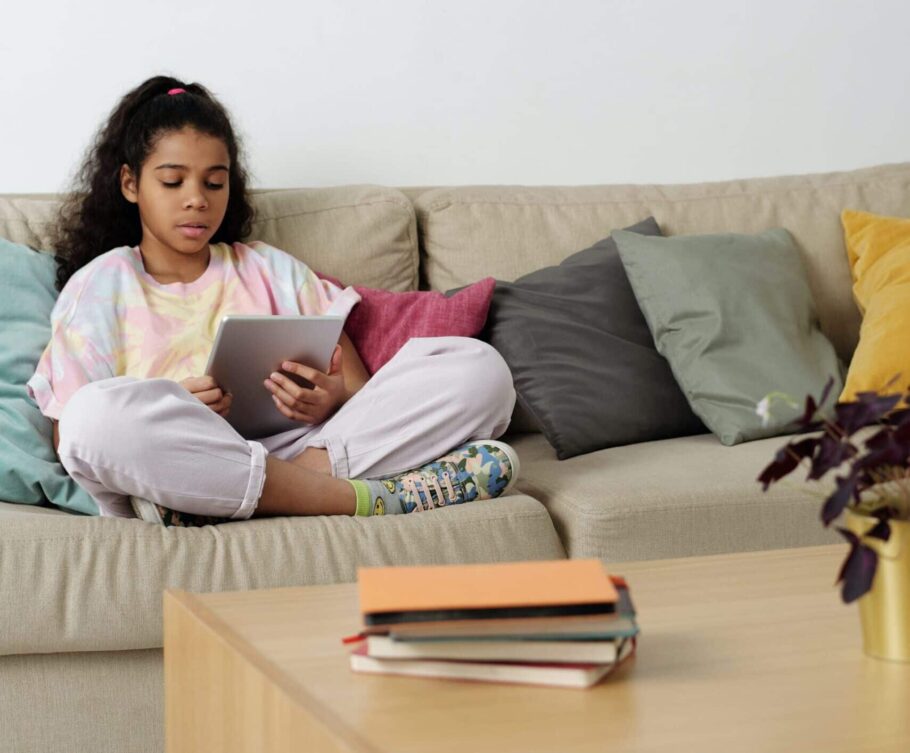Screen time is inevitable, especially at the moment when so much of our normal life’s offline activities are being delivered online (like catching up with with family and friends, school work, and extra-curricular activities). So make sure you schedule in times where being on a screen is mandatory, in balance with offline activities.
For example, in between ZOOM calls or online learning, schedule in time for some arts & crafts, exercise, cooking, helping with the household chores, reading a story book or playing a board game.


